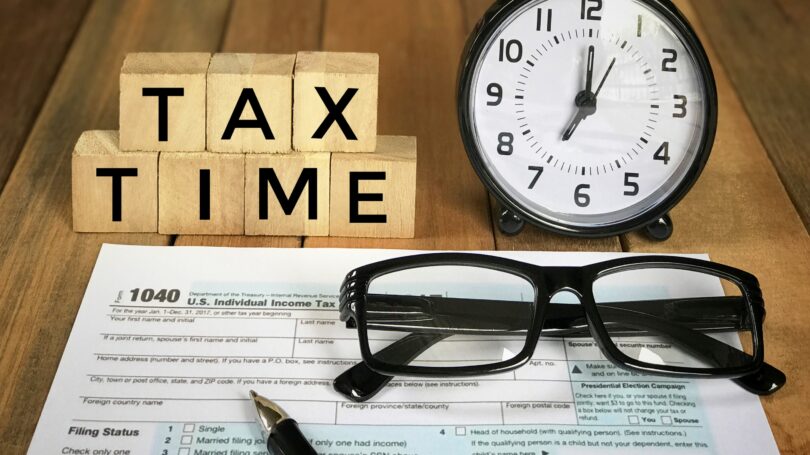Even if you’re happy to part ways with your partner, divorce sucks. Depending on how many assets you shared with your former spouse and how you decided to handle your finances when you were married, getting divorced is often a long and complicated process, not to mention expensive.
Since every couple is different and because divorce laws vary from state to state, there’s really no one-size-fits-all solution that will help you have a smooth and trouble-free divorce. That said, there are a few common financial mistakes you can avoid as you go through the divorce process and afterward. Steering clear of these financial mistakes will help you bounce back after divorcing and move forward with your new life ASAP.
Money Mistakes to Avoid After a Divorce
1. Not Creating a Post-Divorce Budget

Your financial situation is going to change after your divorce, even if you were the sole breadwinner in your household. Not creating a budget that reflects the change in your financial situation is a big mistake. You want to know what’s coming in and going out. You’ll also want to know how you can adjust your lifestyle in light of your new situation.
A budget is a plan for spending based on how much income you have and what your living expenses are. It helps you see whether you need to earn more or spend less or to set and plan for financial goals.
After a divorce, your budget can help you get back on track financially. If you’re trying to get alimony, having a budget will show the court your expenses are more than your income and that spousal support is needed.
Creating a budget after your divorce is relatively simple. You can put it together with something like Tiller or Personal Capital or do it by hand:
- Tally Up Your Income. Add up all sources of income you have as a newly single person. If you know you’ll have alimony or child support, include those amounts in your budget. If you don’t know whether the court will award you support, it’s better to wait until you’re sure.
- Add Up Your Expenses. Make a list of all your fixed expenses, such as mortgage or rent, utilities, debt repayment, transportation costs, and food. Look at receipts or your bank and credit card statements from past months to get an idea of what you usually spend on variable costs like food and transportation.
- Subtract Expenses From Income. Once you have a ballpark figure for your expenses and know what your monthly income is, subtract the expenses from your income to see if you have enough to cover your costs. If not, think of ways to trim your expenses or make more money. Many people find they need to move somewhere cheaper, switch to a less expensive transportation option, or ask for support from their ex-spouse.
Your post-divorce budget can help you see what’s working and what’s not when it comes to your finances and can help you decide what to do to move forward with your life immediately. You might go back to school to advance your career, ask for a raise, or start working full-time if you were only working part-time when you were married.
2. Tapping Retirement Savings to Help Cover Living Costs

Although the exact price of a divorce varies based on the divorce attorney you hire, where you live, and how long the process takes, one thing is sure: Divorce is expensive for many people, which leaves them scrounging for quick cash.
When they need money fast, people often look to their retirement accounts, such as an IRA or 401(k). But it’s a big mistake to take money out of or borrow from your retirement savings.
When you take money out of a retirement plan, the money is no longer working for you. It’s not earning interest. Even if you put the same amount back later, you’ll miss out on those months of interest, which can be bad news for your financial future.
And in many cases, withdrawing from your retirement savings early can have tax implications. You’re likely to pay a 10% penalty tax on the withdrawal, plus income tax on the amount you take out.
Moreover, in the case of a loan from a 401(k), there’s a risk you’ll have to pay back the loan in one lump sum if you change jobs.
Tapping your retirement savings to give yourself a financial boost after your divorce seems like it will help, but in the end, it’s likely to do more harm than good.
Pro tip: If you need access to cash, consider a personal loan from Credible. You’ll receive the cash you need and it can be much cheaper in the long run than tapping into your retirement savings.
3. Not Getting Life Insurance

Life insurance is a must after divorce, especially if you’re receiving or paying alimony or child support. If you’re paying support, life insurance ensures your children are financially protected in the event of your death. If you’re receiving support, make sure your ex-spouse has a policy so you don’t lose much-needed income in the event of their death.
Life insurance is often required when a court orders child support or spousal support. If you’re not sure what your settlement says, discuss it with your attorney. Life insurance is much easier to obtain today than it was 10 years ago. Companies like Ladder allow you to apply in just five minutes and receive an instant decision.
Even if you aren’t receiving or paying support, it’s a good idea to have a policy in place if you have children. If you and your ex share custody, each one of you should have a life insurance policy. If one parent dies, the benefits paid by the policy will help make up the lost income.
If you had a policy before your divorce and your ex is listed as your beneficiary, take their name off the policy. If you have them, list your children as the beneficiaries or work with an attorney to set up a trust for the benefits.
If you and your ex didn’t have kids together and you have no other dependents after your divorce, you most likely don’t need to have a life insurance policy for the time being.
4. Giving in to Your Ex’s Demands

Once your divorce is final, the best thing to do is have a no-contact period with your ex-spouse for at least one month, if not longer. Having a no-contact rule is tricky if you have children together, but it’s not impossible.
Cutting ties with your ex gives you time to heal from the pain of divorce. It also makes it easier to avoid any financial demands or requests if they have regrets about the financial terms or property division in the divorce decree.
It’s not uncommon for some exes to continue to make demands on their now-former partners after a divorce. Remember the divorce is over. You don’t owe your ex anything that hasn’t already been laid out in your divorce settlement. If they ask you for money or try to negotiate things that are already covered in your settlement agreement, remind them of the no-contact rule and ask them to follow it.
5. Neglecting Your Taxes

Getting divorced changes your tax situation. Even if you were married most of the year, it’s possible you’ll have to file separately. Your tax status is based on your marital status on the last day of the year. So if your divorce was finalized on Dec. 31, the IRS expcts you to file as a single person or head of household. But if you didn’t become divorced until Jan. 2, you’ll still file as a married couple for the previous year, even if you told your ex it was over prior to the new year.
Note that changing your filing status changes your exclusions for capital gains. For example, as a married couple, you and your spouse would avoid paying capital gains tax on the first $500,000 from the sale of your house. If you are single, the excludable amount drops to $250,000.
But divorce does more than change your filing status. It also changes how much you owe or what income you have for the year. For example, if you and your spouse sold assets during the settlement process, you’re likely to owe taxes on those assets.
While a lower tax bill isn’t a reason to skip getting a divorce, it’s important to understand what divorce will mean for your tax liability. It might be worthwhile to discuss how your divorce will change your tax situation with a financial planner so you’re prepared to pay a higher-than-anticipated tax bill at filing time.
6. Keeping Joint Accounts Open

Now that you’re divorced, you shouldn’t share anything except your children with your ex. That includes bank accounts, credit cards, and loans. If your ex is an authorized user on any of the credit cards in your name, remove them. You don’t want to run the risk of them racking up a lot of charges you’ll have to pay off.
If you have joint debts, such as a shared personal loan or an auto loan in both your names, the process of splitting it up is trickier. You can’t just call up the lender and ask them to remove one of you from the debt. Instead, you’ll most likely have to refinance the loan in one person’s name only. The same is true of shared mortgage payments. If you didn’t sell the family home as part of the divorce, you and your ex will need to refinance the loan so that only one of you is responsible for the mortgage.
As for bank accounts, you’ll probably split up the balances and close the accounts as part of your settlement. You can also divide the balance in the account as soon as you decide to divorce and close it then. Whatever you do, make sure your ex no longer has access to what’s rightfully yours.
Pro tip: If you choose to open a brand new bank account, there are quite a few accounts offering a bonus on new accounts. Click here to learn more.
7. Not Getting (and Keeping) All the Paperwork You Need

During a divorce, paperwork is your friend. Having documentation that shows how much you and your spouse earned, whether you bought property together, and what your joint assets are will help you out through the process of property division.
But after the dust has settled, hang onto all that paperwork, even if it seems like you no longer need it. Don’t KonMari your documents because they no longer spark joy, because you may need them in the future. For example, some people are eligible to claim Social Security benefits if they were married for more than 10 years, even if they’re divorced.
Those financial documents also allow you to present the court with the most accurate picture of your finances possible. If you later need to change your alimony or child support agreement, you must present the court with paperwork to back up your claim.
8. Treating Yourself

At the end of the divorce process, many people feel emotionally spent and in need of a little pick-me-up. And when you’re emotionally exhausted and feeling vulnerable, it’s easy to go overboard with the treat-yourself mentality.
Getting a manicure or buying a cool pair of shoes is one thing, but try to avoid any purchases that will have long-lasting effects on your finances. Now isn’t the time to buy a flashy new car or to give your wardrobe a complete overhaul. If you want to show your ex you’re doing fabulously without them, do it without going into debt or spending beyond your means.
Final Word
If, after your divorce becomes final, you find yourself looking at your new financial situation thinking, “Now what?” you’re not alone. You’re likely to face new financial issues as a single person, and it can be more challenging to make ends meet. It’s tempting to look for quick-fix personal finance solutions like tapping into your retirement account or selling off whatever you can.
The key to emerging from a divorce with your finances intact is keeping a cool head. Learn as much as you can about how your life will change after your divorce before you make any decisions. Get support from your divorce lawyer and a financial expert, such as a certified financial planner, to help you put together a post-divorce financial plan.
If you’ve been through a divorce, what financial decisions did you find most challenging to make? What advice would you give other divorcees?
